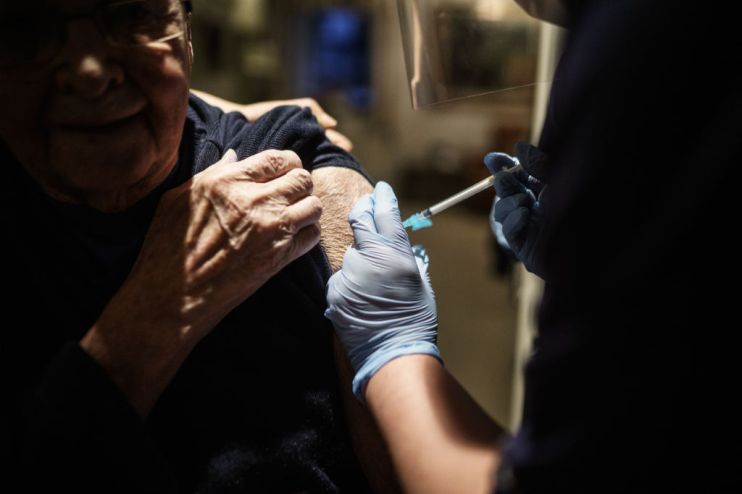Pfizer vaccine ‘appears effective’ against new Covid strains

The Pfizer/Biontech Covid vaccine will likely work against a batch of new, highly transmissible coronavirus strains, the companies announced this morning.
In a study published today, Pfizer and scientists from the University of Texas Medical Branch said the vaccine appeared to be effective in neutralising virus mutations seen in the southeast of England and South Africa.
The study, which has not yet been peer reviewed, was conducted on blood taken from people who had been given the vaccine.
“We’ve now tested 16 different mutations, and none of them have really had any significant impact. That’s the good news,” said Phil Dormitzer, one of Pfizer’s top viral vaccine scientists.
The pharmaceutical giant said it hoped to have more data on the new coronavirus variants in coming weeks.
Professor Sian Griffiths, expert epidemiologist and Public Health England advisor, told BBC Breakfast “the results were very positive, meaning that the Pfizer/Biontech vaccine does protect against those variants and also other variants”.
She added that it was thanks to the UK’s “good genomics” that Britain now has a world-leading understanding of the new B117 variant, which saw infections skyrocket in London and the Southeast.
“Other countries are needing to do more work on which variant it is that’s pushing their numbers up, and what we need to do is have these amazing scientific advances that we’ve made through the pandemic apply to making sure that vaccines do cover variants and therefore provide protection,” she added.
The European Union this morning announced it will receive an additional 300m doses of the Pfizer vaccine.
European Commission president Ursula Von der Leyen said the latest order will double the bloc’s total number of doses to 600m.
It comes despite the transport secretary this morning warning that current Covid vaccines may prove ineffective against the new South African variant.
“There are concerns that the South African one in particular — about how effective the vaccine would be against it — so we simply cannot take chances,” Grant Shapps told Sky News.
Shapps yesterday extended a UK travel ban to include a number of southern African countries after data showed immediate action was needed to contain the spread of the new strain.
Simon Clarke, professor in cellular microbiology at the University of Reading, earlier this week warned that the new South African Covid strain “has a number additional mutations” that included more extensive alterations to the spike protein.
He added that the requirement for passengers to have a negative test before arrival into England and Scotland has became “much more urgent” because of new coronavirus strains.
“This is an extra check and we’re doing this now because there are these variants that we’re very keen to keep out of the country, like the South African variant, for example,” Shapps said.